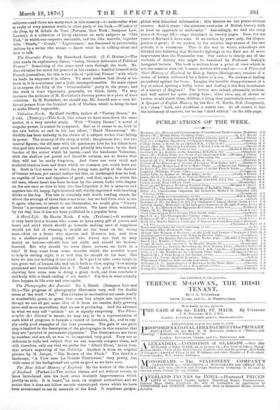heart and mind which should go towards making sure of
happiness should yet fail of winning it, should set her heart on the wrong men—first on a brute who marries and ill-treats her, and then on a shallow-pated young swell who leaves her that he may marry an heiress—should lose her child, and should die broken- hearted. But why should we have these sorrows set forth in a tale? If they come from some disorder which the novelist hopes to help in setting right, it is well that he should do his best. But hero we can see nothing of the kind. Is it good to take some tangle in this great web of human life, and set it forth to view, saying how utterly perplexed and inextricable this is '? Would it be good to write a tale showing how some man is doing a great work, and thee conclude it suddenly with a blank ending of his death? Yet this is what actually does happen in life over and over again.








































 Previous page
Previous page